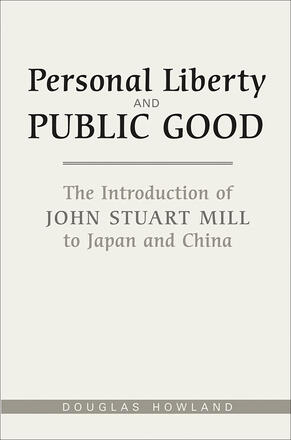
Personal Liberty and Public Good
The Introduction of John Stuart Mill to Japan and China
Description
Blame for the putative failure of liberalism in late-nineteenth-century Japan and China has often been placed on an insufficient grasp of modernity among East Asian leaders or on their cultural commitments to traditional values. In Personal Liberty and Public Good, Douglas Howland refutes this view, turning to the central text of liberalism in that era: John Stuart Mill’s On Liberty.
Howland offers absorbing analyses of the translations of the book into Japanese and Chinese, which at times reveal astonishing emendations. As with their political leaders, Mill’s Japanese and Chinese translators feared individual liberty could undermine the public good and standards for public behaviour, and so introduced their own moral values – Christianity and Confucianism, respectively– into On Liberty, filtering its original meaning. Howland mirrors this mistrust of individual liberty in Asia with critiques of the work in England, which itself had trouble adopting liberalism.
Personal Liberty and Public Good is a compelling addition to the corpus of writing on the work of John Stuart Mill. It will be of great interest to historians of political thought, liberalism, and translation, as well as scholars of East Asian studies.